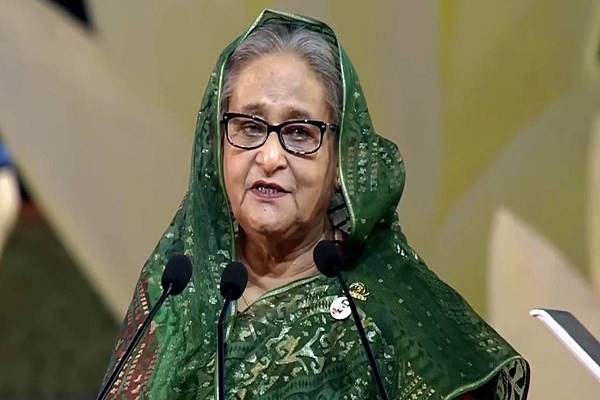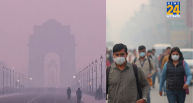New Delhi: By revoking the diplomatic passport of Sheikh Hasina, has Bangladesh moved one step forward in the direction of formally asking India to extradite the 76-year-old leader? Bangladesh Nationalist Party, which boycotted the General Elections held on January 7, 2024, has pressured India to extradite the former prime minister. In an attempt to browbeat India, which has been supporting Hasina for the last five decades, Secretary General Mirza Fakhrul Islam Alamgir demanded that she be extradited to face charges of murder and genocide. Talking to journalists he said, “It is unfortunate that our neighbouring country has sheltered her. Staying there, Hasina has started a conspiracy to foil the victory of Bangladesh.”
Sheikh Hasina Faces 42 Murder Charges
Muhammad Yunus-led Interim Government of Bangladesh has slapped Hasina with 51 cases, including 42 of murder. Many of her former cabinet colleagues too have been accused of murder, corruption, and financial irregularities. Some others have already been arrested. It is believed that the demand to extradite the deposed leader and revoke her passport is a ploy to intimidate Hasina so that she does not return and try to find her lost political base in the country.
Will Bangladesh Officially Make Extradition Request?
Political observers believe despite political and moral grandstanding, the Nobel laureate-led interim government would not officially request New Delhi to extradite the deposed prime minister. After all, the country that has been surrounded on three sides by India, its biggest trade partner, would not go to the extent of harming its relationship with New Delhi for punishing a 76-year-old lady who has now become a spent force.
What Will India do if Dhaka demands extradition?
An important clause in the India-Bangladesh Extradition Treaty signed in 2013, says that the request may be turned down if the charges are politically motivated. It also contains a long list of crimes that would not be deemed politically motivated. It includes murder, kidnapping, bomb explosion, and terrorism. As Sheikh Hasina has been accused of murder and genocide, it would be difficult for India not to deport her on this basis.
No Proof Required For Extradition
The extradition treaty was amended in 2016 to add a clause, making the process easier. Clause 10 (3) states that furnishing the proof of crime will not be mandatory, an arrest warrant issued from a court of law will be sufficient for the extradition. It is clear that if even a district court issues an arrest warrant against Sheikh Hasina and Dhaka asks for her extradition, India will be in a very difficult position.
Still, India can reject the extradition request under certain other provisions of the treaty. It can be denied if a case that requires extradition to the country to which the extradition request has been made is filed in that country. However, no case has been filed against the Bangladeshi leader, nor there is any possibility of doing so shortly.
India Can Reject Extradition Request On These Basis
According to the treaty signed by the two neighboring countries, extradition can be denied if the charges are made not in the interest of judicial process.
Extradition can also be denied if the charges are related to social crimes and they do not come under the criminal jurisprudence.
Any country can reject the extradition request if it is feared that the person extradited may be treated badly or denied justice. Former Education Minister Deepu Moni was assaulted in the court and Industrial Advisor Salman F Rehman was humiliated while being produced in the court. India can reject any extradition treaty on this ground.
Besides, many loopholes in the treaty can be used to delay the process for a long time.
Is Sheikh Hasina Waiting For Opportune Moment?
Political analysts also believe Awami League still has a huge following in the country, it has an army of committed workers in all segments of the society. After a lull when the present anger and frustration of the people are dissipated and the present or the future government takes unpopular steps, the masses may look back at the party that played the most crucial role in the independence war against Pakistan. If it happens, the tide may turn in favor of the former prime minister.
Sheikh Hasina will have to wait in India till a favorable situation develops and it is certain that New Delhi cannot forsake the leader, whom it has been supporting for decades.













